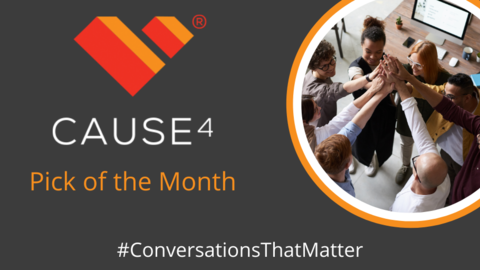Gift Aid: just a box ticking exercise?
7 October 2021 | By Erin Hughes
The 7th October 2021 is Charity Gift Aid Awareness Day, a campaign that aims to reduce unclaimed and mis-claimed Gift Aid across the sector. To mark this day, here’s a run down of what Gift Aid is, and how to make the most of it legally.
What is Gift Aid?
Gift Aid is a government tax scheme which allows charities to claim back 25p for every £1 donated by a UK tax payer.
In order to claim, organisations must be either a registered charity, Charitable Incorporated Organisation, or Community Amateur Sports Club (CASC). Other statuses – such as Community Interest Companies – are not eligible for this benefit.
Charities can claim Gift Aid online through a straight-forward database upload, and will receive payment within 5 weeks. Gift Aid requests must be processed within four financial years of having received a donation.
Despite the generous set up of the Gift Aid scheme, and the relative ease of processing requests, around £560million of Gift Aid goes unclaimed every year.
So how can charities ensure that they are claiming all of the Gift Aid they’re entitled to? And how can they be sure they don’t unwittingly claim money they’re not entitled to?
Unclaimed Funds
- Donors must make a formal Gift Aid declaration
If you want to get started with claiming Gift Aid, simply writing a letter stating that the donor wishes for the donation to be Gift Aided isn’t enough. Charities need to use a formal Gift Aid declaration that makes it clear that if the donor does not pay UK income tax and/or capital gains tax to cover all of their Gift Aid donations in a year, they will have to pay the difference.
Gift Aid declarations don’t have to be made in writing. They can be done orally, including over the phone, or by electronic means such as an online form or email. They just have to cover the key requirements, which are:
- Name and home address of the donor
- Name of the charity
- Identifying the gift or gifts to which the declaration relates
- Confirmation that the donation is qualifying i.e. that the donor has paid sufficient Income Tax or Capital Gains Tax in the current tax year
Think about how and where your charity collects donations, and make sure each mechanism has a way of capturing Gift Aid declarations. This could include paper envelopes near your donation boxes, QR codes linking to a declaration form, or new questions on your online donation system.
- Donors do not have to live in the UK to claim Gift Aid
Lots of funds go unclaimed due to charities or donors thinking that a donor’s lack of UK residency means that their donation is ineligible. Donors do not need UK residency, or even to make a donation in UK currency. They just need to pay tax worth more than the Gift Aid you will be claiming, in the UK.
Misclaimed Funds
- Only monetary donations can be Gift Aided
If a donor gives - for example - equipment instead of money, there is no way to claim Gift Aid, and these donations should not be used for a claim. In some cases, it may make more financial sense for a donor to give money stating a non-binding wish that the money be spent on particular equipment, to allow a charity to claim Gift Aid and then spend the original donation on the same item. However, this may not be that case if a donation comes from a corporate or individual able to supply equipment for a lower price than the charity could purchase it for.
- If you want to claim Gift Aid on a membership scheme, do your research!
There are lots of nuances to claiming Gift Aid on membership schemes, including how much of the cost of membership is a donation, and what value can be put on the benefits offered to members.
For example, the National Theatre values the benefits of its Priority Membership at £11, with the remaining cost (£69) acting as a donation that is eligible for Gift Aid. The charity allows individuals to buy the benefits of membership at the stated value, to ensure that the £69 is only a donation.
If you are considering claiming Gift Aid on memberships, it is worth seeking professional advice to ensure you do not mis-claim any money.
- You cannot claim Gift Aid on mandatory payments
For example, if you host an event and price tickets at £50, this amount is not eligible for Gift Aid. However, should you choose to offer tickets at £30 with a voluntary donation of £20, the voluntary donation could be Gift Aided.
However, you will need to make a careful commercial decision about whether the additional £5 of Gift Aid is worth the risk that some people choose not to pay the voluntary donation.
Is your charity claiming all the funds (and only the funds) it is eligible for? Find out more about Charity Gift Aid Awareness Day and how to get started or improve your processes here.



